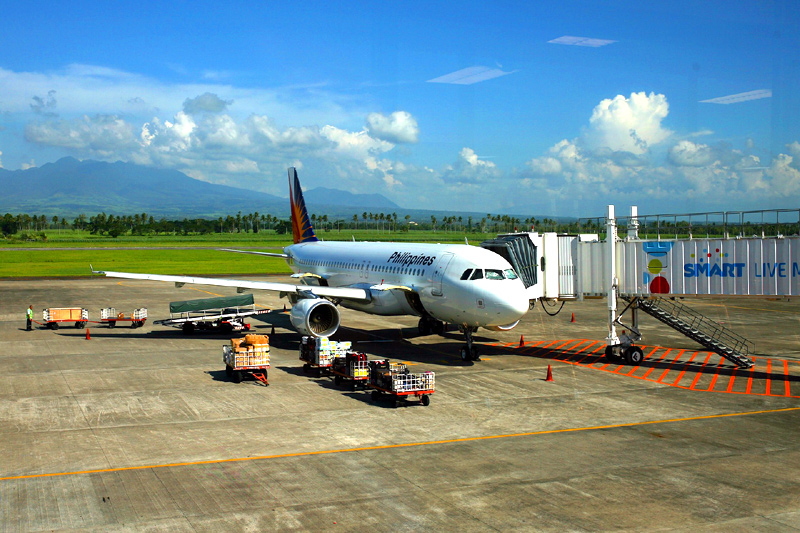As a general term, disruptive technologies refers to innovations that revolutionize existing products and services. Often, they introduce changes that replace established methods, challenging traditional practices and creating new opportunities. Within the Philippines’ airline industry, disruptive technologies are transforming the way Filipinos travel. It encompasses advancements that reshape how passengers book flights, interact with airlines, experience in-flight services, and even how pilots are trained.
If you want to learn more about the exciting landscape of disruptive technologies, here’s how they are set to redefine the Philippine airline industry.
Advancement in Pilot Training
Innovations in the Philippine airline industry include shaping the training of new pilots. Some flight schools in the country have started utilizing flight simulators, virtual reality, and computer-based training modules to train aspiring aviators. These tools provide aspiring pilots with a safe environment where they can practice flying maneuvers. During the simulations, realistic flight scenarios are recreated so student pilots can get hands-on experience, ensuring they are well-prepared for real-world challenges.
Online Booking and Check-in Revolution
Another way disruptive technologies are reshaping the Philippine airline industry is by improving the ticket purchasing process. These days, you can skip the long lines at ticket counters thanks to online booking and check-in systems. In fact, many Philippine airline websites have already upgraded their web design to reflect this change. This transformation empowers travelers to search, compare, and book flights seamlessly, enjoying the convenience of choosing seats and even pre-ordering in-flight services. As a result, travelers can now plan their journeys from the comfort of their homes with just a few clicks.
Personalized Travel Experience
Have you ever imagined a travel experience tailored to your preferences and past choices? With data analytics and artificial intelligence, this dream is easily becoming a reality. Filipino travelers can expectpersonalized recommendations, exclusive offers, and travel suggestions that resonate with their uniquetastes. That’s because airlines are utilizing the power of technology to understand their passengers better, ensuring that each journey is a reflection of individual preferences.
Digital Payments for Seamless Transactions
Nowadays, cashless transactions are becoming the norm, and the Philippine airline industry is embracing this change. Filipino travelers are maximizing mobile wallets and digital payment methods as a way to book flights, pay for in-flight services, and manage travel expenses. This technological shift not only offers passengers a more convenient and secure way to do their transactions but also enhances the overall travel experience by minimizing the need for physical currency.
Improved In-Flight Entertainment and Connectivity
Before, many travelers dreaded the thought of long flights because they were often synonymous with boredom. These days, this is no longer an issue with extended journeys, all thanks to the new in-flight entertainment options. Through seatback screens or personal devices, you now have access to a treasure trove of movies, shows, music, and games during your flight. Additionally, onboard Wi-Fi allows you to stay connected, catch up on work, or share your travel experiences online and in real-time.
AI-powered Customer Service
Another disruptive technology you can expect to see more of is AI-driven customer service. When it comes to getting instant help and information, chatbots and virtual assistants are your new best friends. You can count on them to assist you in changing your seat or to inquire about flight details. AI-powered tools are also available around the clock to provide prompt assistance to travelers, making your journey smoother and hassle-free.
Data Security and Privacy Considerations
With the increasing use of technology comes the responsibility to safeguard passenger data and privacy. Airlines in the Philippines are committed to ensuring compliance with regulations and implementing robust cybersecurity measures. This way, travelers can rest assured that their personal information is protected throughout their journey.
Streamlined Operations and Efficiency
Behind the scenes, technology is also optimizing airline operations in ways we might not even notice. Data analytics and predictive maintenance help airlines operate more efficiently, resulting in reduced delays and smoother travel experiences. The optimization of flight routes and fuel consumption not only saves costs but also contributes to a more sustainable approach to air travel.
Eco-Friendly Innovations and Sustainability
As environmental concerns grow, so does the airline industry's commitment to sustainability. Disruptive technologies enable airlines to optimize flight paths and reduce carbon emissions, contributing to a greener future. Filipino passengers play a vital role by supporting eco-friendly travel options and aligning their journeys with environmentally conscious values.
Biometric Identification for Enhanced Security
As part of implementing new technology, travel security is also improving. Philippine airports and airlines are implementing biometric technology to streamline check-in, security checks, and boarding. Through your unique biometric data, such as fingerprints or facial recognition, the process becomes more efficient. It also offers a more secure way of enhancing the overall safety of all passengers. The introduction of disruptive technologies in the Philippine airline industry is making air travel more convenient, personalized, and efficient than ever before. It also affects aspiring aviators, as they’re gaining new opportunities to reach their dreams. As the industry embarks on this journey of transformation, you can look forward to a future where every flight becomes a cherished experience.
Like this post? Subscribe to this blog by clicking HERE.
Let’s stay connected:
